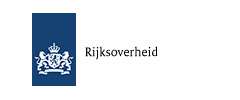Landmark UN report on EDCs published
The State of the Science of Endocrine Disrupting Chemicals report acknowledges that synthetic chemicals can have significant health impacts
25.02.2013 |UNEP/ WHO

Medical science has shown that EDCs are far more complex and pervasive than assumed in previous decades. With wide gaps of knowledge on their exact functioning, global collaboration on testing, research and reporting is needed. The cost of exposure to EDCs needs to be understood to minimise risks and highlight greener options.
EDCs are additives in many household and industrial products and can also be found as contaminants in food. EDCs are very common in pesticides, electronics (as flame retardants) and cosmetics. Humans are mostly affected by exposure via ingestion, inhalation and skin contact. EDCs interfere with the body’s sensitive hormonal system and contribute to many severe health problems. Among them are non-descended testes in young males, breast cancer in women, prostate cancer in men, developmental effects on the nervous system in children, attention deficit /hyperactivity in children and thyroid cancer.
With unregulated use of harmful chemicals such as EDCs, no sustainable development can be achieved. The WHO calling EDCs a "global threat" emphasizes how important it is to adequately deal with chemicals on a globally coordinated strategy level. WECF also contributes to raising awareness with EDCs forming a major focal point of international campaign work. WECF also especially highlights the health implications of EDCs for vulnerable groups such as children and pregnant women in its Nesting Project (available in different languages). You can also download or order the English flyer on avoiding EDCs from our website.
Related News
Getting to the Future We Want
4-7 November, Brussels: European Environmental Bureau’s (EEB) Annual Conference
12.11.2018
Human Biomonitoring for Europe
Vienna, 26 September: stakeholder forum
28.09.2018
A life without plastic, wouldn't it be fantastic?!
Interview with Charlotte Schueler of @PlastikfreiLeben, who lives a zerowaste life in Munich, Germany and shares her experiences to her 25.2 thousand followers on instagram & 37.2 thousand followers on facebook
14.09.2018
Calling for periods free from plastic & hazardous chemicals
Letter to Frédérique Ries, MEP, European Parliament on behalf of the #BreakFreeFromPlastics movement
04.09.2018






































